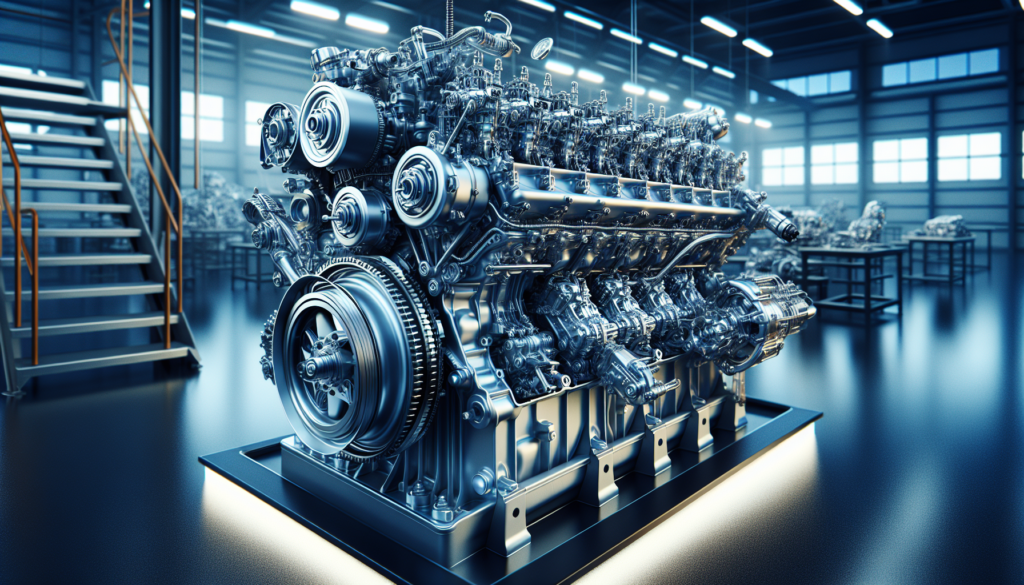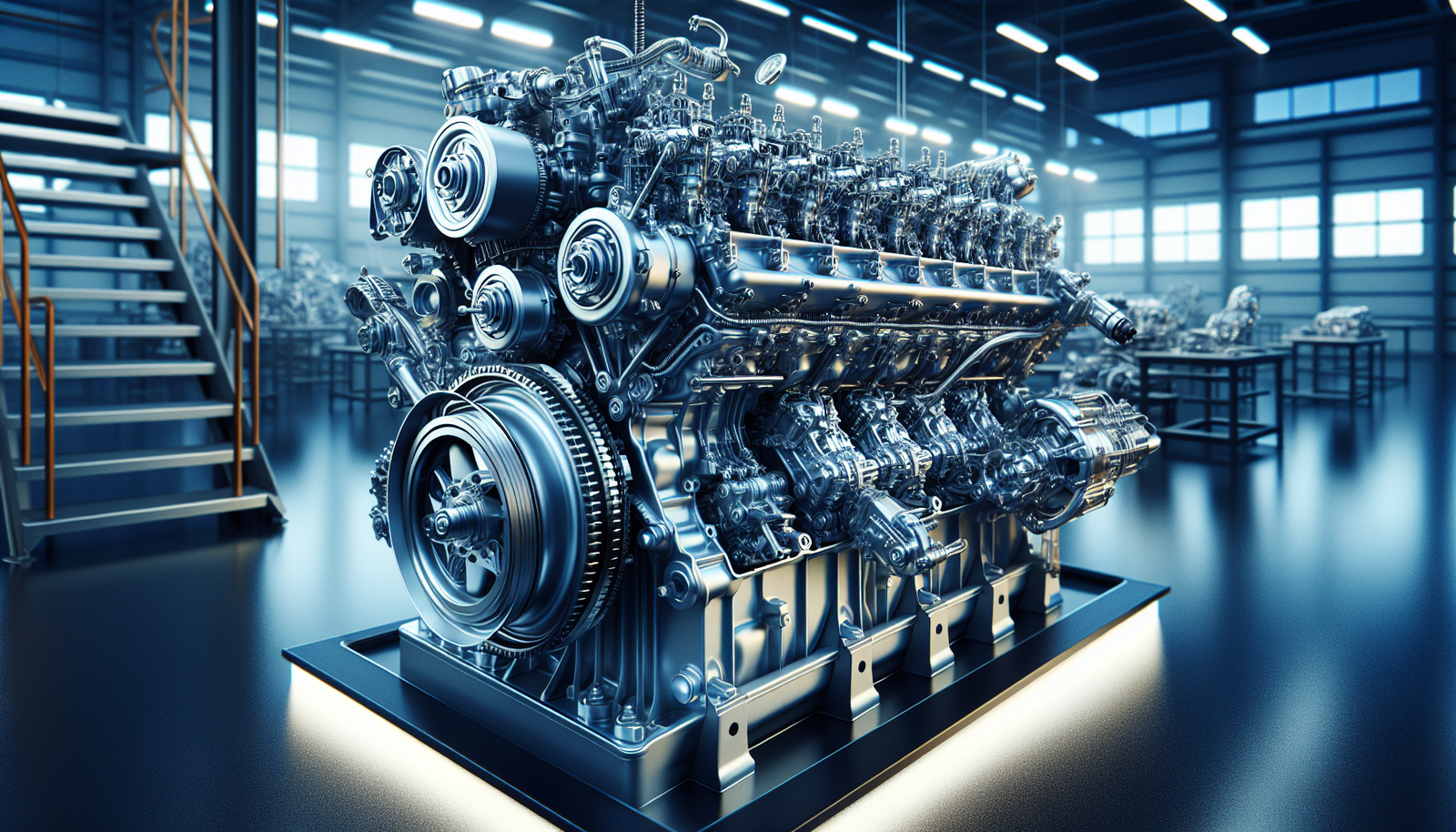Imagine you’re out there on the waves, the sun is shining, and a gentle breeze is blowing. Suddenly, your boat engine sputters, stalls, and dies, leaving you stranded miles from shore. To save you from such a horrible experience, this article is here to share the top 7 boat engine maintenance tips that every boat owner must know. By mastering these influential tips, you can ensure that your boat engine runs smoothly, lasts longer, and more importantly, doesn’t leave you stranded out at sea. Time to seize the day and take care of your boat engine like a pro!

Understanding Your Boat’s Engine
Being a boat owner, you’ll likely spend a fair amount of time out on the water enjoying the breeze and waves. In order to continue that enjoyment and prevent yourself from being stranded at sea, it’s crucial to understand your boat’s engine. This involves knowing your engine type, identifying its key components, and understanding how it works.
Know Your Engine Type
Your boat’s engine will usually be either an inboard or outboard engine. Inboard engines are mounted inside the boat’s hull, while outboard engines are attached to the outside and double as a steering and propulsion system. Inboard engines offer more power and are typically found in larger boats. Outboard engines offer the advantage of being completely portable and are usually used for smaller boats.
Identify Your Engine’s Key Components
Learning about your engine’s components is very much like learning about your body’s organs. Familiarize yourself with crucial parts such as the carburettor, the alternator, the water pump, the oil filter, and the spark plugs. Each part plays a significant role in the operation of your boat’s engine.
Learn How Your Boat Engine Works
Understanding how your engine works will help you troubleshoot when things seem a little off. Essentially, your boat engine operates via a process of combustion similar to what you’d find in a car engine, where fuel in the cylinders is ignited to produce power.
Frequent Inspection of Your Boat Engine
Safety and problem prevention are the primary reasons for carrying out frequent inspection of your boat engine. Regular inspection can catch early signs of damage before they become major issues.
Inspection Checklist
Your inspection checklist should include a check of the oil levels, inspection of the fuel lines, review of the cooling system, and a visual inspection for any apparent signs of wear and tear.
Identifying Potential Problems During Inspection
Being familiar with your boat engine’s normal functions will help you spot potential problems. Look out for corrosion, leaks, abnormal noises, or sudden changes in the engine’s performance.
Addressing Issues Found During Inspection
Once you have identified potential issues, take the necessary steps to address them. This could be as simple as tightening a loose part or might require professional intervention.
The Importance of Regular Engine Inspection
Regular inspections can extend your engine’s life and potentially save you from costly repairs. It also ensures safe operation and keeps the engine running efficiently.
Change Engine’s Oil Regularly
Next to frequent inspections, Regular oil changes are another crucial aspect of boat engine maintenance. This is because oil plays a vital role in lubricating the engine and maintaining its overall health.
Benefits of Regular Oil Changes
Regular oil changes help to keep the engine clean by removing dirt and debris. They also prevent corrosion and limit wear and tear on the engine’s components.
How to Properly Change Your Boat’s Oil
Changing the oil involves first running the engine to warm up the oil, then turning off the engine and locating the drain plug. After draining the old oil and discarding it properly, replace the oil filter and refill the engine with new oil.
Recommended Oil Change Frequency for Boat Engines
The frequency of oil changes can vary depending on the type of engine and usage, but generally, it should be changed every 50-100 hours of operation.

Keeping the Engine Clean
Keeping your engine clean is not only aesthetically pleasing but also beneficial for its operation.
The Benefits of a Clean Engine
A clean engine can help in identifying any fluid leaks, cracks, or corrosion. Plus, it can help the engine stay cooler and run more efficiently.
Methods for Cleaning Your Engine
Cleaning your boat engine involves removing loose dirt and debris, then using a degreaser and a brush to scrub off the built-up grime. After this, rinse the area carefully, avoiding any sensitive parts like the alternator or carburetor.
Products to Help Keep Your Engine Clean
There are several products available to help keep your engine clean, like engine degreasers, specialized brushes, and so on. Always look for marine-grade products as these are designed to withstand the harsh marine environment.
Proper Engine Winterization
Boat engine winterization is an essential step when preparing your boat for the colder months when it will not be in use.
Why Winterization is Important for Boat Engines
Winterization protects your boat engine from the potentially damaging effects of freezing temperatures, such as cracked blocks or corrosion caused by stagnant fluids.
Step-by-Step Guide to Winterize Your Engine
Winterizing your engine involves a series of steps like flushing the cooling system, stabilizing the fuel, changing the oil, and protecting the engine using fogging oil. Other steps include removing the battery and storing it properly and thoroughly cleaning and drying everything.
Products to Assist with Engine Winterization
There are various products available such as antifreeze, fogging oil, fuel stabilizers, and more. These products help in the effective and thorough winterization of your boat’s engine.
Regularly Check Engine’s Cooling System
Your engine’s cooling system plays a critical role in preventing overheating while your boat’s on the move.
The Role of the Cooling System in Your Boat’s Engine
The cooling system helps to maintain a constant engine temperature. It does this by circulating coolant to dissipate heat from the engine.
Signs Your Cooling System May Not be Functioning Correctly
Warning signs of a malfunctioning cooling system include an overheating engine or if the temperature gauge constantly reads high. Moreover, if you notice coolant leaks or see steam coming out, it’s a clear indication that the cooling system is in trouble.
How to Maintain Your Engine’s Cooling System
Regularly inspect the coolant level, check for leakage, clean the heat exchanger, and examine the condition of the coolant pump to maintain your engine’s cooling system.
Fuel System Maintenance
The fuel system in your boat is responsible for storing and delivering the fuel your engine needs to run.
The Importance of Boat Engine’s Fuel System Maintenance
Proper maintenance of the fuel system can prevent problems like engine sputtering, loss of power, or even complete engine failure.
Common Issues with Boat Fuel Systems
Typical fuel system issues can include leaks, clogged fuel filters, or water in the fuel. Ethanol-related issues can also arise, leading to fuel degradation and corrosion.
How to Maintain Your Boat’s Fuel System
Regularly inspect the fuel lines, change fuel filters, and use a fuel stabilizer to protect against ethanol-related problems.
Maintain Engine’s Belts
The belts in your engine play key roles in functions like alternator drive, water pump circulation, and more.
Understanding the Role of Engine’s Belts
Engine belts connect different parts and maintain their synchronized operation. If these belts fail, systems linked to them might also fail.
Recognizing Signs of Belt Wear and Tear
Signs of belt wear and tear can include cracking, fraying, or noticeable slackness. If the belt starts making a squealing noise, it’s a clear sign it needs attention.
Proper Maintenance for Engine’s Belts
Checking the belts regularly for signs of wear and tear, and replacing them as needed, is sufficient to maintain them.
Keeping Up with Regular Engine Tune-Ups
Giving your engine regular tune-ups can help it to continue running at the best of its ability.
The Importance of Regular Engine Tune-Ups
Engine tune-ups help maintain your engine’s performance, reduce the chance of engine failure, aid in fuel efficiency, and increase the life of your engine.
What Happens During a Boat Engine Tune-Up
During a tune-up, a mechanic typically checks the fuel, ignition, and cooling systems, and the outdrive oil. They’ll also replace the spark plugs, adjust the carburetor, test the compression, and replace the distributor cap and rotor, if necessary.
Scheduling Your Boat Engine Tune-Ups
A general guideline for engine tune-ups is every 100 hours of operation, but this could vary based on your specific engine and usage patterns.
Preventative Maintenance and the Role of Professionals
preventative maintenance involves taking steps to prevent future problems by addressing potential issues before they become serious. Having the help of an experienced professional can be invaluable in this process.
The Value of Preventive Maintenance for Boat Engines
Preventive maintenance can dramatically extend the life of your engine and save you from expensive repairs down the line. It also ensures smooth and safe operation of your boat.
When to Seek Help from a Professional
If you notice any irregularities with your engine’s operation, or if maintenance tasks have become too complex or time-consuming, it’s best to seek the help of a professional mechanic.
Selecting a Boat Engine Maintenance Professional
When selecting a professional, look for technicians who are certified by reputable institutions and have a good track record. Trust your intuition and ensure they offer clear communication about engine issues and costs involved.

